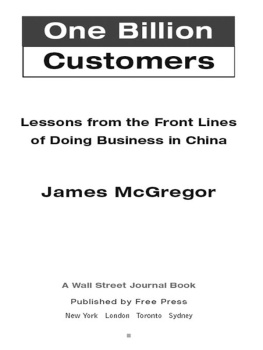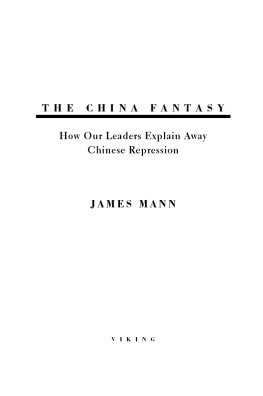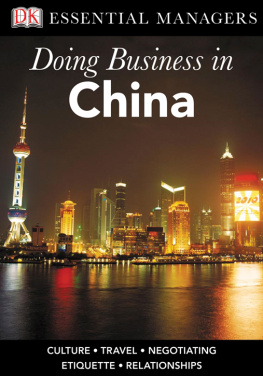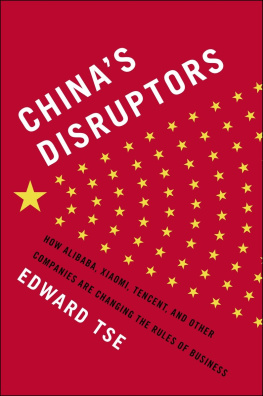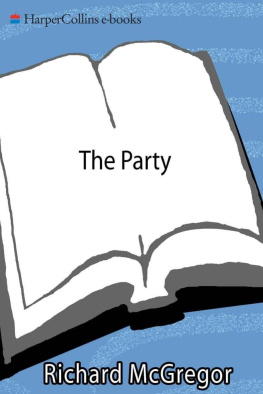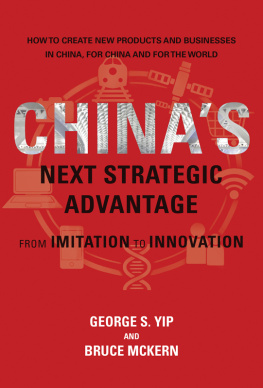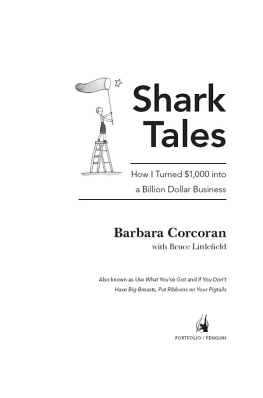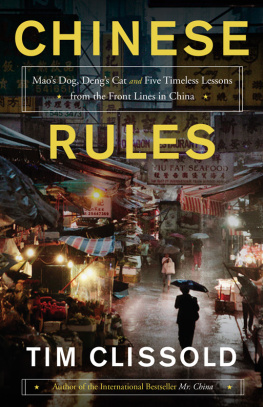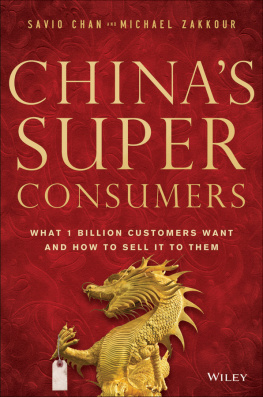Chinese Government Officials
Deng Xiaoping The leader of China from 1978 to 1989 who established market-oriented reforms and sparked the ongoing economic boom.
Ding Guangen Chinas propaganda czar, director of the Communist party Propaganda Department who controlled the Chinese media throughout the 1990s.
Gao Xiqing A key founder of Chinas stock markets and longtime senior securities regulator who most recently was vice-chairman of the National Council for Social Security.
Hu Jintao President of China and Communist party boss starting in 2002.
Jiang Zemin President of China and Communist party boss who carried out Dengs reforms from 1989 to 2003.
Li Peng Premier of China from 1987 to 1998 who became the belligerent face of the government during the Tiananmen demonstrations. Despite his reputation as a conservative hardliner, he pushed government acceptance of a 1992 U.S.China market access agreement that led to Chinas first significant commercial regulatory reforms.
Long Yongtu Senior Chinese trade official who handled Chinas negotiations for the countrys 2001 entry into the World Trade Organization.
Mao Zedong Chinese Communist revolutionary leader who defeated Chiang Kai-shek in 1949 and led the Peoples Republic of China from triumph into tragedy. His rule ended with his death in 1976 after the countrys economy and social system were destroyed by the Great Leap Forward and the Cultural Revolution.
Shi Guangsheng Minister of trade from 1998 to 2003.
C. H. Tung A shipping company executive who was Hong Kong chief executive after the handover of Hong Kong to China from Britain in 1997. He resigned in 2005 due to deep unpopularity in China and Hong Kong.
Wang Qishan Most recently the mayor of Beijing and formerly president of China Construction Bank from 1994 to 1998. He oversaw the Morgan Stanley joint-venture investment bank, China International Capital Corporation (CICC). The son-in-law of Yao Yilin, who was vice-premier in charge of finance and economics from 1979 to 1993, Wang is also the godfather of Chinas stock markets.
Wu Jichuan As the minister of the Ministry of Information Industry (and its predecessor, the Ministry of Posts and Telecommunications) from 1993 to 2003, he was known as Chinas telecom czar and architect of the worlds largest telephone system.
Wu Yi Most recently vice-premier and health minister who served as trade minister from 1993 to 1997.
Zhao Weichen The first chairman of China Unicom and creator of the Chinese-Chinese-Foreign investment structure that gathered more than $1 billion in investment from international telecom companies without giving away any equity in Chinas telephone operating system.
Zhao Ziyang The premier of China who was ousted after the Tiananmen Massacre and held under house arrest until he died in 2005. He was the architect of Dengs first wave of reforms and mentor to a generation of Chinese reformers.
Zhou Enlai Maos right-hand man and longtime premier of China who is credited with working to curb many of Maos excesses. He died in 1976.
Zhou Xiaochuan Most recently governor of Chinas central bank, the Peoples Bank of China, he earlier served as Chinas top securities regulator and chairman of China Construction Bank.
Zhu Rongji Premier of China from 1998 to 2003 who is credited with designing and implementing the countrys most significant financial and economic reforms.
Zou Jiahua The vice-premier of China in the 1990s who served as the key patron of Unicom and advocate for breaking the China Telecom monopoly of Chinas telephone system.
U.S. and British Government Officials
Charlene Barshefsky The U.S. trade representative from 1997 to 2001 who engineered the U.S.-China agreement that led to Chinas entry into the WTO.
George H. W. Bush The forty-first president of the United States, from 1989 to 1993, who had served as Nixons representative in China in 197475 and later personally ran China policy from the oval office as president.
George W. Bush The forty-third president of the United States, assuming office in 2001, who initially considered China a second-priority country for the United States in Asia because of its lack of democracy, but befriended China after the September 11, 2001, Al Qaeda attack on the World Trade Center towers and Pentagon.
Bob Cassidy The U.S. trade representatives chief negotiator for Chinas accession to the WTO.
Warren Christopher The U.S. secretary of state from 1993 to 1997 who was strongly criticized by the American business community while carrying out Clintons policy of threatening to cancel Chinas MFN status on human rights grounds.
Bill Clinton The forty-second president of the United States, from 1993 to 2001, who initially threatened to cancel Chinas most favored nation trading status on human rights grounds but soon capitulated and oversaw successful U.S. efforts to bring China into the WTO.
Christopher Cox Republican congressman from California who headed the congressional committee that issued the hyperbolic Cox report on Chinas systematic stealing of American nuclear and military technology, thereby igniting a frenzy of racism against Chinese in America.

